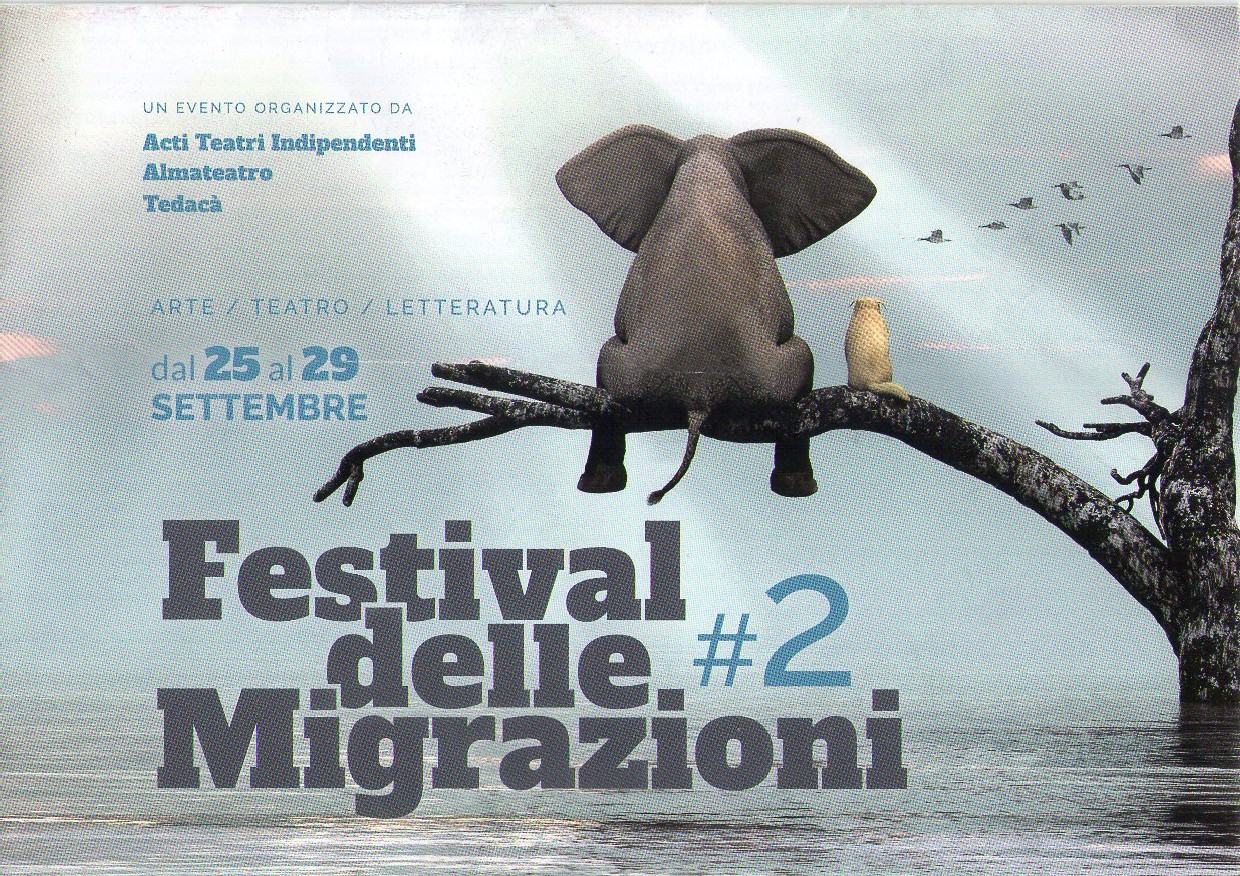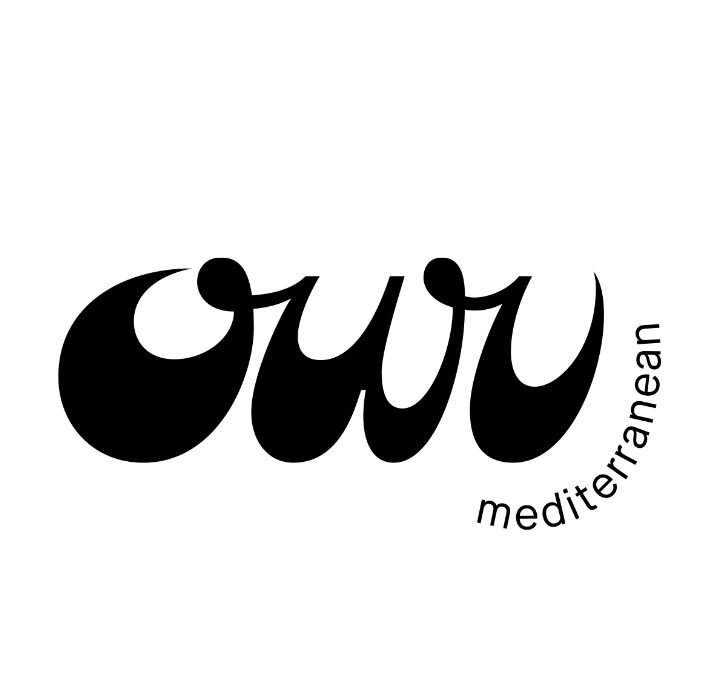Maydan’s Co-president Lisa Ariemma joined the second edition of the Festival delle Migrazioni, which took place in Turin (Italy), September 25 – 29, 2019. Below her review of the public debate “I Mediterranei nel mondo: Dialogues and reflections on the idea of the Mediterranean observed from a global and transnational perspective. Analysing European and intercontinental policies” – which she contributed to. This article is predominantly based on the content and ideas expressed during the panel discussion as interpreted by the author. Panel members were:
Lisa Ariemma – Co-president, Maydan Association; William Bonapace – IDOS (Dossier Statistico Immigrazione); Rosita Di Peri – Department of Cultures, Politics and Society, University of Turin; and Maria Perino – ADL (Associazione per l’Ambasciata della Democrazia Locale a Zavidovići).
The event was moderated by Gabriele Proglio – contemporary history researcher and author of Mediterraneo Nero.
In his 2018 publication “The Lies that Bind: Rethinking Identity”[1] philosopher Kwame Anthony Appiah examines the manner in which narratives shape our sense of identity and belonging, but may also be fed by erroneous underlying assumptions that can become the enemy of human solidarity, provoking devastating wars and championing modern-day apocalypses. Indeed, he argues that lies and misconceptions are sometimes what unite groups of people. The dominant identity that is formed, based on false narratives, becomes an authority and subordinate identities are destined to be oppressed or ignored.
In a certain sense, Appiah’s study on individual and group identity can be translated into an analysis of the relationship between the northern and southern shores of the sea that has divided and united civilizations for millennia.
We cannot talk about the Mediterranean, or “Mediterraneans”, without considering the language that we use to define and describe it, nor can we do so without taking into account who is controlling that language. The debate today over the relationship between the two shores of the Mediterranean Sea is inextricably linked to controlling bodies: so-called white ones and black ones; who can be a citizen and who can’t, who should be expelled and who might be useful.
This discourse on bodies began the conversation on the perception of “Mediterraneans” from a global and transnational perspective at the second edition of the Festival of Migrations in Turin, Italy on September 28, 2019.
How the Mediterranean has been represented over time has shaped the perception of the north-south relationship. More recently, the space between the cultures of the peoples on both shores has been augmented with the adoption of words such as “Balkanization” and the notion of “Orientalism” as an “otherness” to Western Europe. The common geography and culture has been distanced giving predominance to the monolithic and “separatist” narratives often promoted by Western literature and academics.
Political practices are more easily justifiable when a region is depicted as far from us, without history, politics or culture and as an area of division and violence. The dominant narrative, particularly over the past 20 years, has depicted the southern Mediterranean region as tribal-based, conflict-ridden and highly religious. This perception has been often reinforced by the conclusions of American think-tanks. Mass media has also fed into, and augmented, this representation of otherness making it part of everyday language and conceptions.
At the same time, those who are trying to furnish counter-narratives of solidarity that are challenging the existing dominant narrative, which is often spearheaded by populist rhetoric, are being delegitimized, discredited and, in some cases, criminalized. We need only to think about the people in non-governmental organizations (NGOs) assisting migrants crossing the sea that are facing fines, verbal abuse and have on occasion experienced jail time.
Maydan Association is among the NGOs working on challenging the dominant narrative that separates rather than unites the two shores. Through its Appeal “Embracing the Mediterranean means saving Europe” prior to the 2019 EU elections, and the related on-line petition signed by more than 5,100 citizens, Maydan members have recognized a widespread desire to revisit how the northern and southern shores of the Mediterranean interact.
Knowing and disseminating the facts on key issues such as democratic movements, migration and terrorism is a critical factor in the struggle to change the existing negative narrative. For example, how many Europeans know that tens, and sometimes hundreds of thousands of Algerians have been protesting for a fundamental systemic change in their nation since last February? And are the majority of people aware that almost 50 percent of recorded migrant deaths globally in 2018 occurred in the Mediterranean?[2]
Do most people know that more than 10,000 Americans are murdered each year with a handgun while the number of Americans who have died due to terrorism globally in recent years has never numbered more than 80 per year (with the exception of 2001)?[3] How about the fact that 60 percent of people killed by terrorist acts live in five “non-western” countries.[4] These statistics are just a very small first step in considering the broader narrative and attempting to change some of the lies and misconceptions evident in the north-south Mediterranean relationship.
On the eve of the 25th anniversary of the Barcelona Declaration, Maydan, along with partners from both shores, aims to work toward changing the prevailing negative narrative linked to the Euro-Mediterranean relationship through a new initiative called “Change the Narrative”. Maydan is planning to promote dialogues and debates in Europe and beyond, organize an advocacy week in Brussels, and youth workshops with the winners of the “Floating Voices” creative arts contests with the theme of a common Mediterranean destiny. The hope is to start a ripple effect and promote a more democratic approach in Euro-Mediterranean relations from the grassroots to the institutional level.
Grassroots action in Bosnia-Herzegovina has been critical in managing the movement of people through the Balkans where Bosnians are leaving the country due to socio-economic challenges while, at the same time, migrants are arriving. The Local Democracy Agency in Zavidovići, for instance, is working to ensure the facts of what is occurring in that area are relayed outside of the territorial confines[5]. The Balkan route remains one of violence, barbed wire and drones in what people refer to as “the game” that is getting into the European Union, and the Mediterranean migration model is rampant with illegality and a lack of laws and regulations, as well as general oversight on the part of European countries not directly affected. When attention is being paid to the migration issue, however, the results tend to be the implementation of highly restrictive measures. Furthermore, there is little investment in immigration, which feeds the demand for illegal labour and results in migration routes that are linked to market demands. We cannot, therefore, ignore the criminal aspects linked to migrant workers and the migration phenomenon in general.
Many Europeans like to boast that there has been no war on European soil in over 70 years without remembering the devastating consequences of the disintegration of the ex-Yugoslavia. This year marks the 30th anniversary of the fall of the Berlin Wall and yet thousands of kilometers of wall dot the European landscape: from Macedonia and Bulgaria to Spain and Norway.
It is clear that an awareness of what is happening according to concrete facts is necessary. For example, the dominant narrative speaks of invasions, yet the UNHCR reported that as of September 2019, 75,000 migrants had entered Europe, less than half of last year’s number. While Greece remains the main point of entry, Spain has overtaken Italy, though this fact doesn’t play out in the populist rhetoric of former Italian Minister of the Interior Matteo Salvini. In August and September this year, Greece expelled thousands of migrants to Turkey, considered safe according to the Euro-Turkish migration pact; however, because Europe hasn’t paid its quota to Turkey, migrants who aren’t Syrians have been expelled and Syrians without documents have been sent back to Syria[6].
In the Balkans, after Hungary closed its borders in 2015, Bosnia-Herzegovina became the point of passage into the EU. By 2018 between 22,000 and 24,000 migrants attempted to cross into Croatia from that country. While it has become the buffer zone between EU and non-EU territory, Bosnia-Herzegovina, along with Croatia, has received considerable EU funding to manage the migrant crisis. Along with the market of illegal immigrants shaping the migration routes, another factor that manipulates and warps the narrative is the money that is being made in countries like Turkey, Bosnia-Herzegovina and Croatia through EU funding for camps, fences, personnel and so on. In fact, there are currently approximately 40,000 people being held in various camps, detention centres and the like, across Europe. In the meantime, the budget for Frontex, the EU border police, has increased a hundredfold[7].
The result is people being trapped in camps, separated from children or family, unable to return home and with no way to move forward. As William Bonapace concluded at the talk: “It is an infernal mechanism, a terrible game being played out at the expense of people.” Who plays the dominant role and who the subordinate in this game is crystal clear, changing the narrative that dictates this unequal relationship is our challenge.
October 10, 2019.
Notes
[1] K.A. Appiah, La menzogna dell’identità: come riconoscere le false verità che ci dividono in tribù, Giangiacomo Feltrinelli Editore, Milan, 2019.
[2] IOM’s Missing Migrants Project, 2019.
[3] Sources: C. York, “Oregon Shooting: US Gun Deaths Compared To UK And Those Killed By Terrorism”, The Huffington Post UK, 2/10/2015; S. Mervosh, “Nearly 40,000 People Died From Guns in U.S. Last Year, Highest in 50 Years”, New York Times, 18/12/2018; Gun Violence Archive (gunviolencearchive.org); National Consortium for the Study of Terrorism and Responses to Terrorism (www.start.umd.edu).
[4] Global Terrorism Index, 2018.
[5] Source: Maria Perino, ADL Ambassador.
[6] Source : William Bonapace, IDOS; M. Ottaviani, “I curdi cacciati e sostituiti da altri siriani. Il dramma del popolo senza Stato”, La Stampa, 10/10/2019.
[7] William Bonapace, IDOS.


